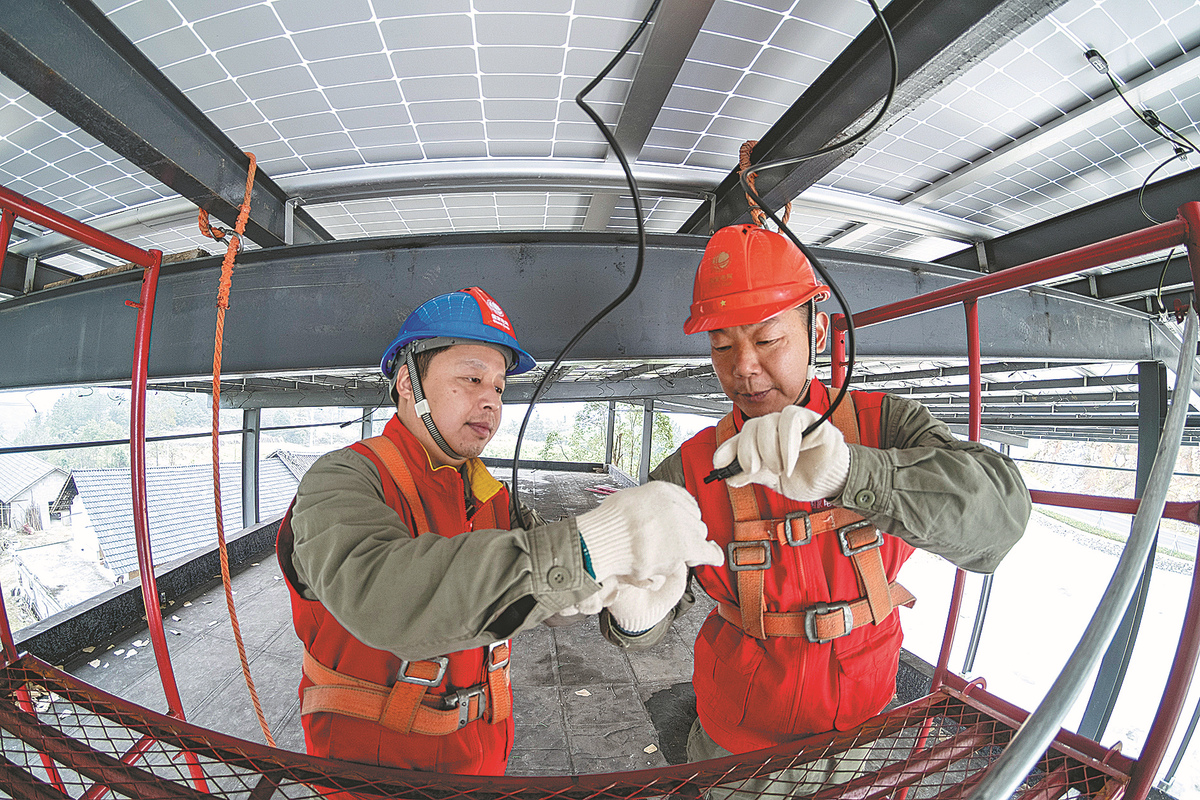Power from above benefiting rural villages


According to the State Council, "China will focus on building major wind power and photovoltaic power stations in desert areas, integrate new energy exploitation and utilization with rural vitalization, and promote new energy application in industry and construction sectors."
By combining its targeted poverty alleviation efforts with clean energy projects in rural areas, China is killing two birds with one stone.
Northwest China's Qinghai province is one example of launching solar power projects to pull poor villages out of poverty.
Yangjiashan, a village in Haidong, has installed more than 100,000 solar panels on top of mountains in the area to generate power. These panels were incorporated into the power grid in June 2020.
Covering 66.7 hectares, the project is one of 31 villager-led photovoltaic poverty alleviation projects in Qinghai, according to China Global Television Network.
Qinghai's solar power projects had an installed capacity of 16.77 million kW as of the end of last year, according to the province's bureau of statistics. About 283,000 villagers in poverty, accounting for 52.5 percent of the total poor population of the province, have benefited from these projects, CGTN said.
'A good approach'
"China's solar photovoltaics poverty alleviation program is a good approach to dealing with the country's poverty issue," said Zou Jintai, a researcher at the Institute of Rural Economy of the Hubei Academy of Social Sciences.
There are already many ways to fight poverty in rural China, including poverty alleviation policies focusing on industrial development, aquaculture and farming, Zou added.
"But these approaches are subject to market fluctuations," Zou said. "Take pig farming for example. You can give the targeted poor farmers piglets and fodder. If they can't sell their pigs, they can't make money. In other words, they don't have a reliable source of income. There is a possibility that they become poor again."
On the other hand, he said, the photovoltaic poverty alleviation program, "funded by the government, will be a stable source of income for poor people".




































